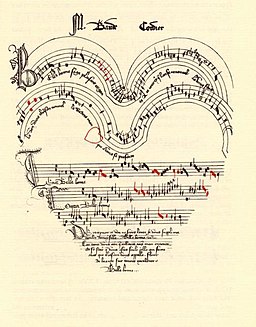Music and Songwriting/Balance in Songwriting

“He should know that whoever undertakes the government of souls must prepare himself to account for them.” ― Benedict of Nursia, The Rule of Saint Benedict
In an age where songwriting is understood and appreciated mostly as a commercial exercise, I'd like to remind anyone who reads this that for most songwriters the heart comes first. Even the few who succeed as commercial songwriters cannot escape grappling with the spiritual foundation of what they do. Songs affect people, the writer first and foremost. Therefore as we go forward to become better songwriters, I'll recommend that the first thing we think about is balance.
While most of us start writing songs in moments of spontaneous inspiration, and while we always seek and hope for those moments, the songs we create are like children; their conception is but an instant in the course of the life that they have. Songs are conceived in the imagination of the writer, but then they most be developed, refined, finished, retooled, performed, recorded, marketed, memorized, enjoyed...shared with the children of those who loved them. Songs indeed have a full life cycle, and many great songwriters are aware of all phases of the life of their creations from day one. They breed them to succeed, and they sacrifice a lot of the capricious wills of their own tastes to create something that is going to endure, inspire and fill other people with emotion.
Let me suggest a simple outline of what happens when we create a song and how we start to create balance between the stages of creating songs.
- 1 Conception/Inspiration - Every song starts somewhere. In my experience they start as a thing thread of thought, more than a desire than an actual thing. As Eric Whitacre once said, it feels a bit like "an itch you can't scratch." Many writers I know will not write unless they are 'inspired' by a riff or an idea that sticks in their head; others seem to focus much more on active creative processes to generate their song material. In any case, the place a song begins determines a great deal about its direction in life. Songs can be used for unintended purposes, but writers can do a great deal to make a song fit for its intended purpose. In that sense, a writer's awareness of their own intentions is incredibly important. I think there are two broad ways to describe a writer's intention: the concept for a song and the reason why the writer writes.
For example...
Song concept "I want something that sounds like an EDMified funk bassline that will impress my girlfriend with it's use of the word synechdoche" Motivation for writing "I write songs that help people bond to keep the fabric of our culture strong."
Whatever the reasons and concepts are, it behooves the writer to give some thought to making sure they are unified and supportive of one another. After that, it's mostly a matter of your skill in bringing your ideas to life!
Early creation/brainstorming - There are very few songs that are conceived in completion, even by savant composers. Once a basic concept starts to stick, usually the writer has to do something to flesh it out. How they do this depends greatly on their understanding of music, their technique, their organizational capacity, how much time they like to spend writing and refining, and many more things. In the end though, there seems to be the common thread of generating a large number of free-floating ideas that will eventually become the composition.
I think this article summarizes some great thoughts on this phase of writing. One thing that is critical to realize is that in later phases of creativity the composition gets reined in rather than expanded. This phase is like the Big Bang where many seemingly formless pieces get flung into existence. The key is that those pieces have the freedom to be more eccentric without needing to fit any other demands like a rhythm, melody or lyrical scheme. They are free of the structure of the song and can develop a gravity of their own. I'm sure there are different opinions on how much brainstorming is enough, and there are many techniques for generating ideas, but I think it's common sense that you need to generate lots of ideas in order to have enough good ones to make a good song. Most ideas you create are likely to sound bad or not fit the ultimate composition, and trying to create ideas that fit strict requirements usually inhibits the creative process substantially. In general, I advise writers to generate at least twice as many ideas as they need to fill in the blanks, and many more if they can. Ideas that are brainstormed but not used immediately can find their way into other compositions. However, when it gets to the point of organizing verses and there aren't enough ideas, the song tends to stagnate expressively.
http://opinionator.blogs.nytimes.com/2013/01/21/outlining-in-reverse/
